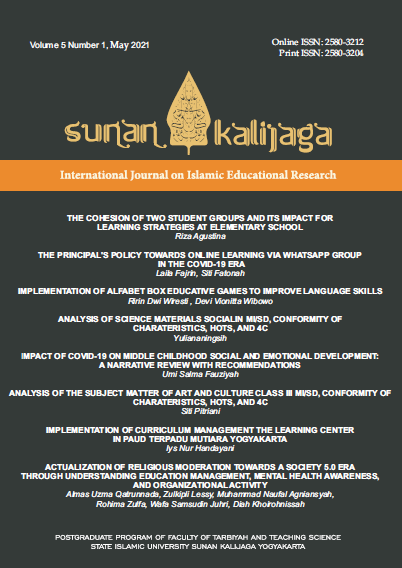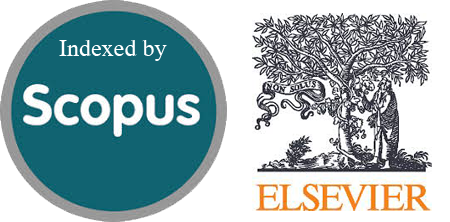ACTUALIZATION OF RELIGIOUS MODERATION TOWARDS A SOCIETY 5.0 ERA THROUGH UNDERSTANDING EDUCATION MANAGEMENT, MENTAL HEALTH AWARENESS, AND ORGANIZATIONAL ACTIVITY
DOI:
https://doi.org/10.14421/skijier.2021.51.08Keywords:
Millennial generation, Religious moderation, Society 5.0, Education, Health, Organization.Abstract
Currently the presence of the millennial generation is sunnatullah, the emergence of this generation is due to advances in science and technology. Millennials rely heavily on social media, however, they do not yet have a strong filter to be able to filter the information they receive. The millennial generation also has challenges in facing a new era in their life, namely the era of society 5.0 as a complement to the 4.0 Industrial Revolution. In this instantaneous era, various religious problems that never end, such as rampant politicization, terrorism, radicalism, extremism, disintegration, misuse of da'wah, exploitation of the people, so many hate speeches, hoaxes and slander are now flooding the faces of the diversity of the nation. In relation to this impact, the level of understanding of education management, mental health awareness, and organizational activeness turned out to be greatly influences human behavior, especially for new students who are vulnerable to invitations from outside influences. Facing an era like this, it is time for the millennial generation to take part in actualizing the moderation of religion as a solution to religious problems.










